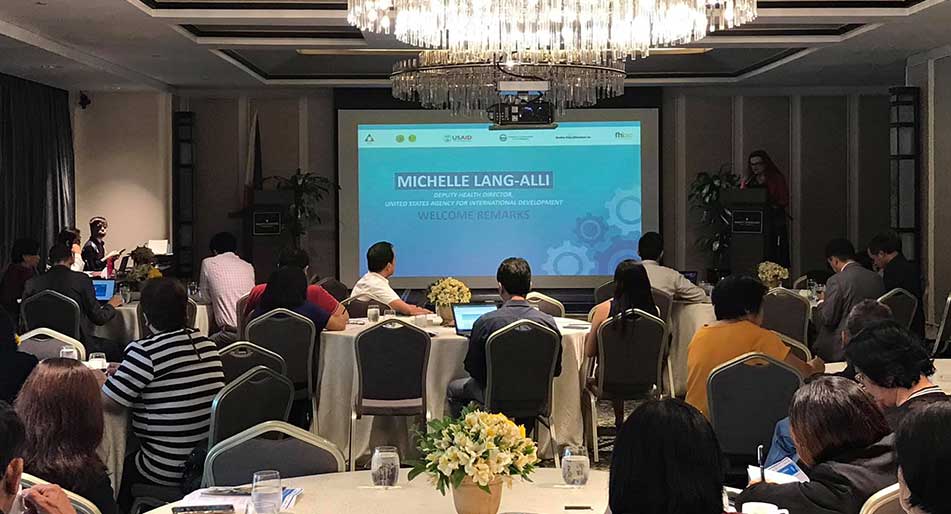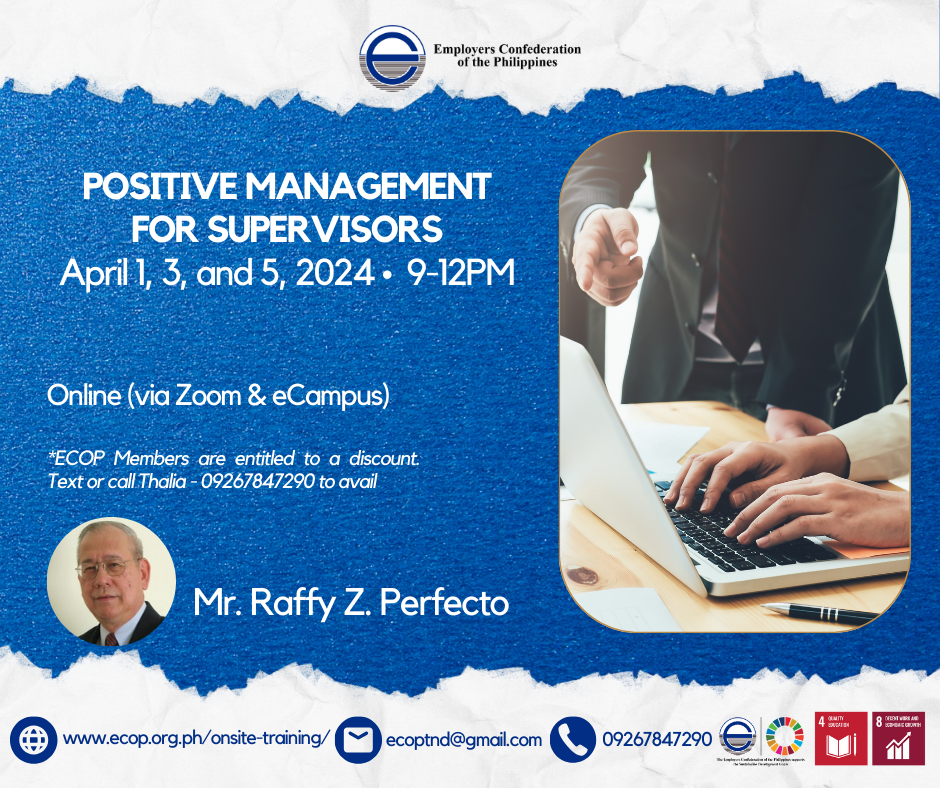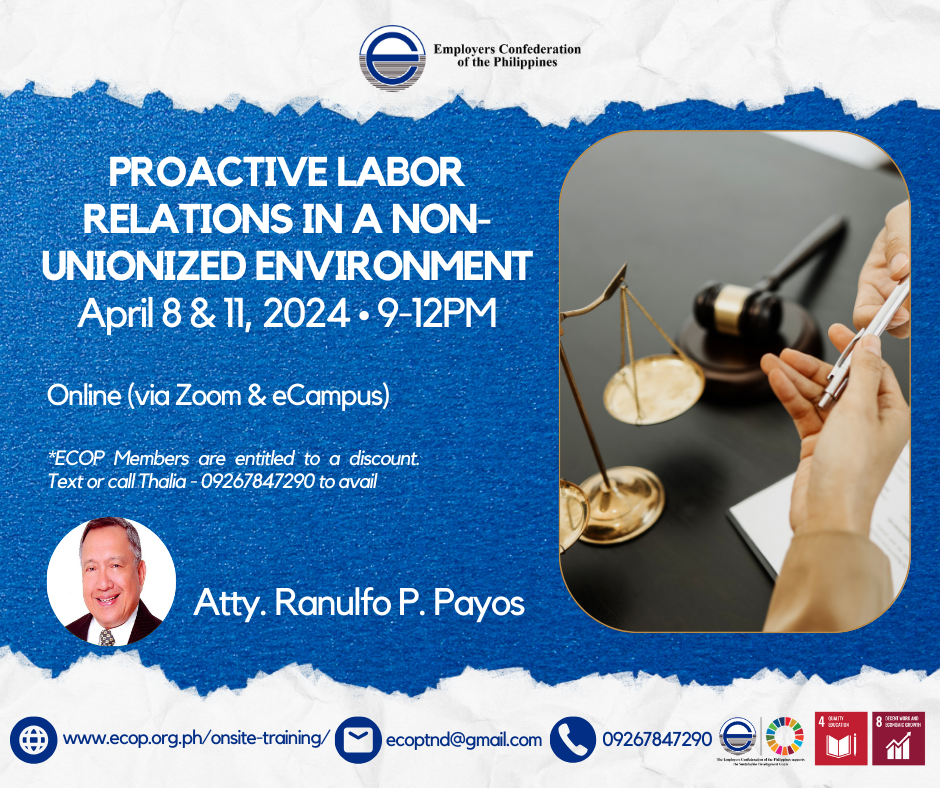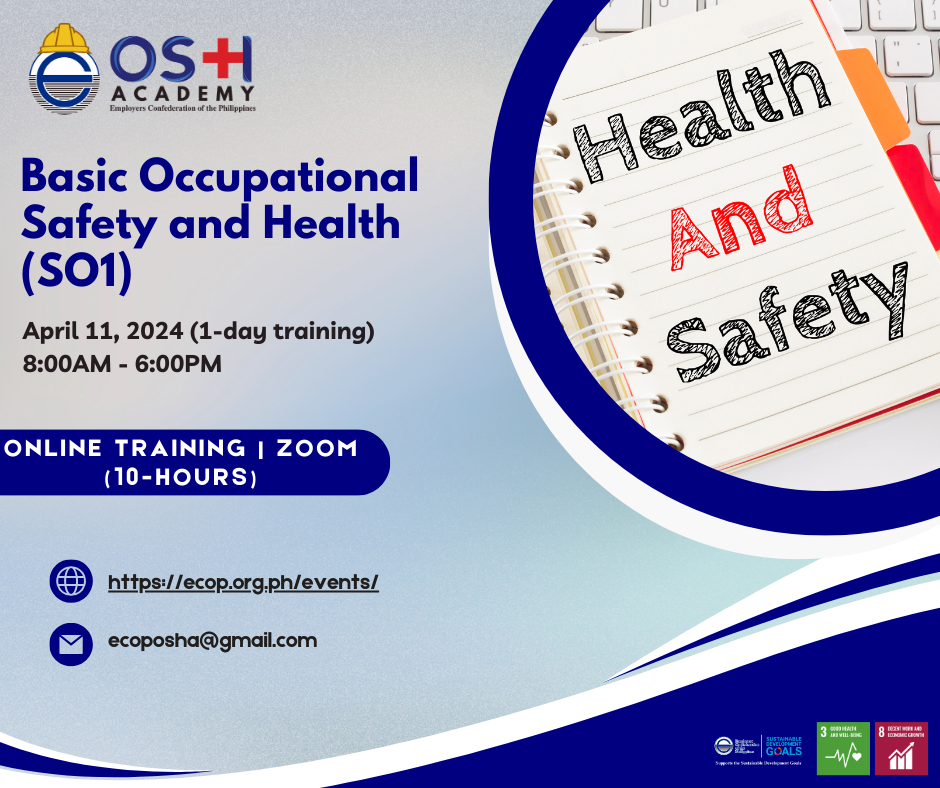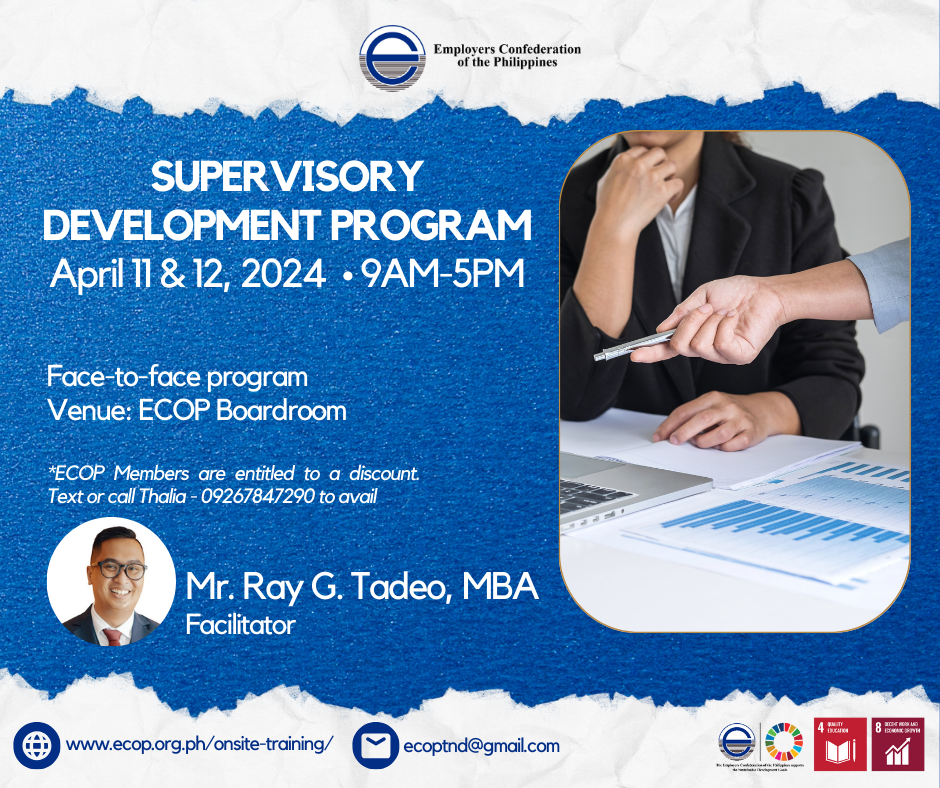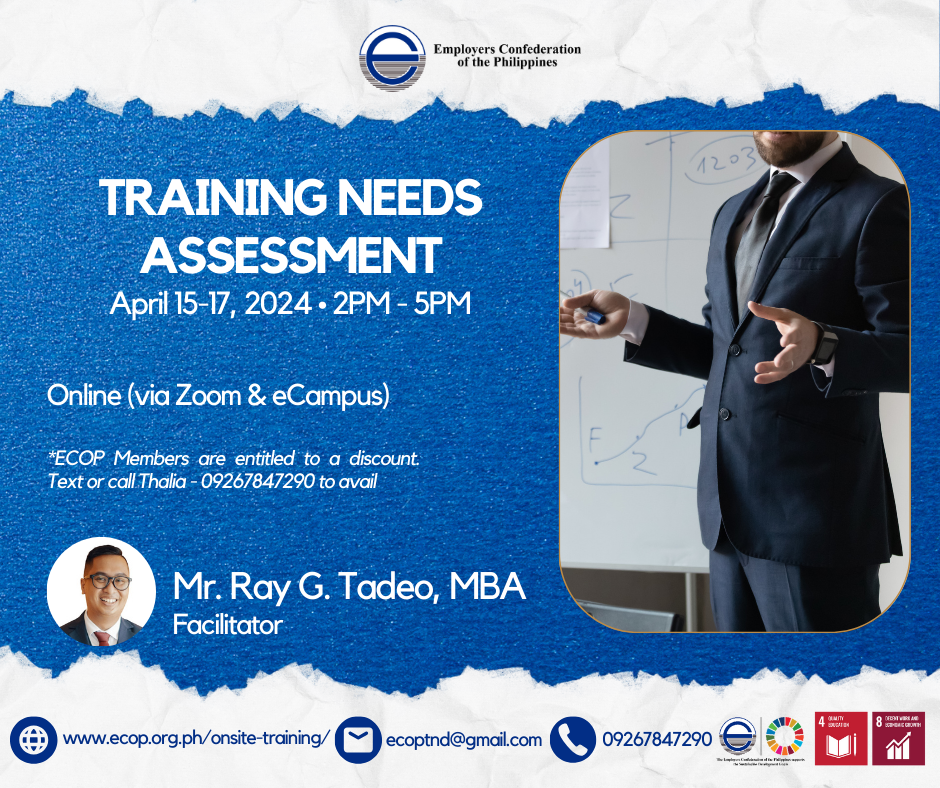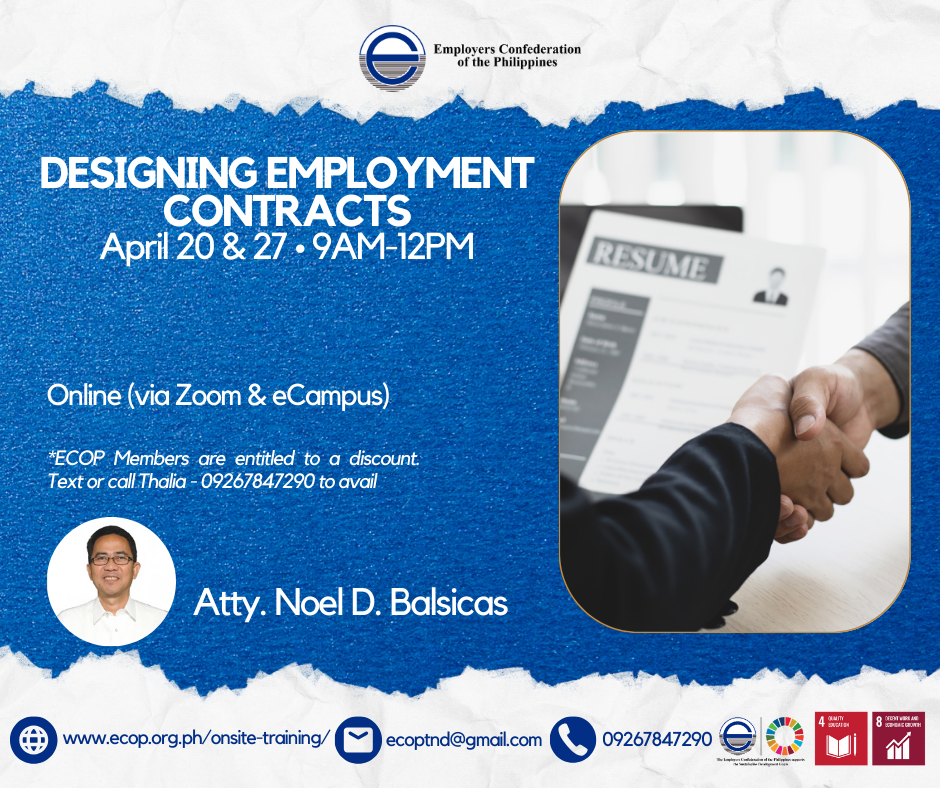The Employers Confederation of the Philippines (ECOP) and TB Innovations and Health Systems project managed by Family Health International (FHI360) jointly spearheaded a forum entitled “TB-Free Workplace Forum: Working to be TB-Free” on August 22, 2019 at Makati Diamond Residences, Makati City.
The forum opened with a special message from the Deputy Health Director of USAID Philippines, Dr. Michelle Lang-Alli who acknowledged the role of emerging multi-sectoral partnerships involving employers, employees, occupational health professionals and government to work together to end TB in the workplace.
The keynote address from the Department of Labor and Employment (DOLE) Secretary was delivered by Dr. Teresita Cucueco, Director of the Bureau of Working Conditions (BWC), who discussed the impact of investing in workforce health as the main asset of companies, underscoring the need to link workplaces to quality diagnosis, treatment and education.
Mr. Tom Hiatt from the WHO Philippine Country Office presented the global socio-economic burden of TB, the vulnerability factors to consider, and the importance of de-stigmatizing the disease especially in the workplaces where missing TB cases may be found for treatment.
Panel discussions led by representatives from the government, labor groups, and civil service organizations focused on the implementation of preventive strategies on TB in the workplace. The panel discussion also shed light on how policies and programs can be used to facilitate linkages for finding, treating and preventing TB among workers, formal and informal, especially in the light of the new OSH Law (RA 11058) and the emerging framework for Universal Health Care (UHC).
Mr. Sergio Ortiz Luis, Jr., ECOP’s president, delivered the forum’s closing remarks and reiterated ECOP’s commitment in mobilizing support to advance workplace policies and programming that will contribute to the overall goal of TB elimination.
The forum was attended by more than 60 representatives from the business sector, organized labor groups from the formal and informal sectors, occupational health provider associations, government agencies, corporate social responsibility advocates, and development partners.

